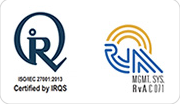Corporations of today are swiftly incorporating sustainability and/or ethical best practices as part of their organization-wide revamps. Better known as environmental, social, and governance (ESG), this system not only impacts the way corporations handle their processes’ outcomes on the environment and its community, but also promotes brand loyalty among customers looking for better brand choices.
Legal departments have a key role to play in the implementation of ESGs in their companies. A survey by Deloitte notes that “90% of the S&P 500 published some form of ESG disclosure, a significant increase from a mere 20% in 2011”. By integrating ESG into your corporate culture, you can impress investors with your forward-thinking approach to sustainability, hone on customer loyalty, and build a better environment for employees.
We list out each facet of ESG, so that your legal department can find out how to supercharge your company. Embed ethics and sustainability into your organization!
1. Take an Environmentally-friendly Stance
According to an article by Thomson-Reuters, pledging to be more environmentally-friendly can span all industries. Whether it’s as simple as promising to reduce your company’s carbon footprint, or as complex as offsetting the effects of the auto or manufacturing industry by planting native plant species, your organization will require the legal knowledge and skills that come with their legal department.
2. Commit to Being Socially Responsible
Diversity, equity, and inclusion are more than catchphrases for a socially-aware culture. They’re the cornerstones for building holistic work cultures, where no community goes unrepresented. Breaking gender, community, and social barriers goes above and beyond being de rigeur; it’s a fundamental element that the entire justice system is based on. Equality and justice for all. This translates back to the people at organizations.
3. Let Governance Play Centerstage in Your Culture
Your company’s hierarchy and structure comes under the governance part of ESG. A governance approach that adopts diversity and socially-aware policies from the top down ensures that these values are an intrinsic part of the company. These values also extend to the vetting of company heads including those at top-level positions, and the hiring process to add new individuals on board.
Benefits of ESGs for Legal Departments
ESG brings a wealth of business and legal benefits to organizations that implement them. An article by Harvard Law School notes that integrating an ESG strategy helps companies “create profits that are larger, more sustainable, and more equitably distributed among all stakeholders such as shareholders, employees, and the community alike”. An improved work culture not only brings positive change to the work culture, but it helps the company’s profile shine when shared with potential investors.
Today’s savvy investors are actively looking to onboard companies that have a strong ethical and social responsibility as part of their ethos. Legal departments at corporations should implement ESGs to gain the winning edge and benefit society at large.
Want to implement ESG in your company?







